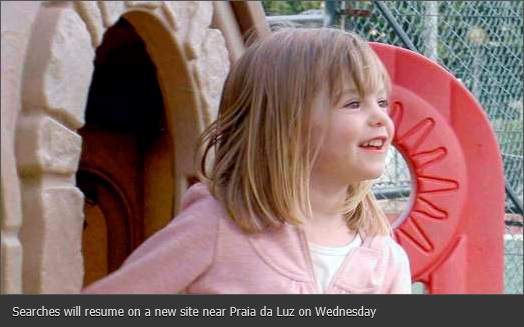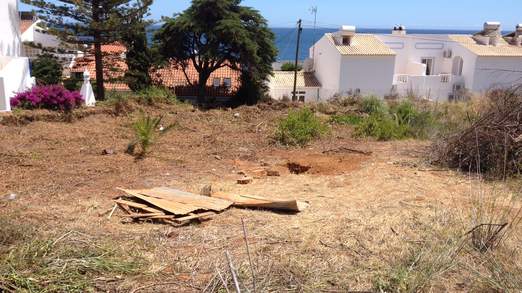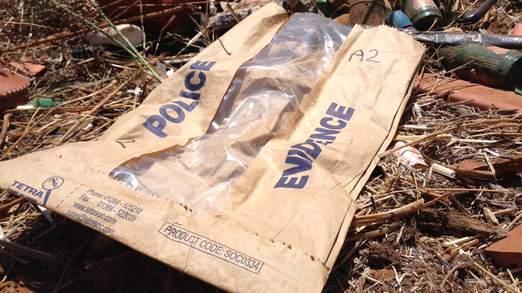TranscriptWith
thanks to
Astro for transcript/translation
Anchor: Concerning the outcome of searches to find traces of
Madeleine McCann, the results are not very encouraging. Animal bones, one sock from a man, two cannabis plants were found
and many soil samples were collected. In Praia da Luz, few believe in the success of this mega operation by the English police.
Voiceover: The mega search operation took a long time to be authorised, but when the English police
received a green light from the Public Ministry of Portimão, it moved into Praia da Luz. The first location of the
police action was an extensive terrain near the sea. Sniffer dogs went into action, as well as geo-radars, archaeologists
and forensic geologists. Around 30 members of the English team, plus 15 from the Polícia Judiciária. Forest
sappers, GNR military, 24 hours a day. The only thing missing was the backhoe. Excavations were made with pickaxes and shovels,
at various locations of the terrain, but one week later, results were not as expected.
Rui Pando Gomes:
This is one of the spots where the English police excavated, everyone had access to the spot and was able to watch the digging.
The geo-radar detected a potential grave, but in the end, what was found was a stone.
Voiceover:
In Praia da Luz, few believe in the success of this mega operation and even less in the thesis that is presented by the English
police, that suspects that the child was taken from home by three burglars.
Bystander 1: It has
no logic. What thief goes to burglarise a house, takes a child, kills her, carries her in his arms, in everyone's sight,
walking down the street, and comes to bury her here, on a terrain that is made only of stones? That is crazy! That's all
I have to say.
Voiceover: These searches are being seen by residents and tourists as one big police
movie.
Bystander 2: A movie. A movie, maybe. I don’t know if this is, as we say, for the
English to see. I am a bit suspicious that this is going to result in nothing.
Bystander 1: I
think that they won't find anything here. Animal bones, maybe, but otherwise...
Voiceover:
And in the middle of this movie, some risk a possible scenario with different actors.
Bystander 2:
The Smith couple saw him on that street, he turned the corner and could have hidden the body in the garden of that abandoned
house. Then, at 6 o'clock – may I say this? – the couple came, when everybody had gone, picked up the body
and came to hide it here. It is possible.
Voiceover: Despite the Portuguese authorities assuring
that all expenses are being borne by the British, some have doubts about who is actually paying the Portuguese forces that
stopped doing their job to be in Praia da Luz.
Bystander 1: I would like to ask that from the
big ones, to find out who is paying the gentlemen from the GNR that are doing services here every four hours.
Rui
Pando Gomes: ... and the forest sappers ...
Bystander 1: Exactly. To all of them
that are here, because they say it's the English that pay, but I don't see the English paying.
Voiceover:
After a week of searches, the collected residues are kept in boxes. A man's sock, animal bones, two cannabis plants, soil
samples and a lot of rocks. Indications that will be used to sustain the thesis of the investigators, that say that Maddie
is dead and passed through this terrain. Or simply to widen the mystery of the disappearance of this English child.
Rui Pando Gomes: In this mega search operation, many means have been used. From the GNR, 40 officers were
on location ensuring the safety of this operation, 40 members of the English police and of the Polícia Judiciária
were involved in the searches, geo-radars were used, sniffer dogs, forest sappers were on location, and many people fought
for this operation to be successful. Nevertheless, the evidence is scarce, the indicia found are very few, the final results
are inconclusive.
Anchor: This is exactly why we speak with Gonçalo Amaral, former Polícia
Judiciária inspector. He followed this investigation in the early days. Good evening, thank you for being here.
Gonçalo Amaral: Thank you.
Anchor: How do you see the movie of
the searches this week?
Gonçalo Amaral: That is exactly it, it's a movie. There are
British journalists who speak of a farce, something staged for the media, and maybe it's nothing more than that. What
is dangerous and serious is this attempt to find a new thesis, a so-called new theory about someone who goes to commit a theft
and is scared by a three-year-old child and kills her and takes her out of there, I think it's convoluted.
But
it's nothing new. I remember that within the investigation, back then, and I recall that I spent six months in that investigation,
not seven years, or three or four, like Scotland Yard – during that time, there was this thesis, too. And it happens
that it was brought forward by a colleague who was a member of British Police, of Scotland Yard. He was the only member of
Scotland Yard who was present in that work group of the Polícia Judiciária and the British police, he was Scotland
Yard.
And when he advanced that hypothesis, it was discussed and completely set aside because it made no sense.
Now they even added a bit more spice, to spice it up, that they are traffickers, that apart from trafficking, one day they
thought of breaking into a house. Nobody proves that house was broken into, that there was a theft, there are no traces of
a break-in.
Anchor: There are these traces, Gonçalo, of banking statements –
Gonçalo Amaral: What banking statements? Those found on the road, rubbish? We are speaking about
rubbish that is being found, and nothing is being related with. The banking statements don't belong to the McCanns, they
weren't taken from inside the house. Nothing was taken from that house. From that house, the only "thing" which
is not a thing, it's a person, that is missing is Madeleine McCann. There is not a television, a photo camera missing,
nothing, no money is missing, and there are no traces of a break-in. Therefore, there was no burglary there. There was no
assault on that house.
So now this theory is another show, a farce like the papers and some British journalists
say, and that is all that it is.
Anchor: And who is writing this farce's plot?
Gonçalo
Amaral: It's Scotland Yard that is writing. They have a certain difficulty to end the investigations, they are
getting to the point of saying that she is dead, they will reach the point of saying that the cadaver can't be found,
and that the case can't be solved.
Anchor: They are being pressured by the government, by
the McCann family, by whom?
Gonçalo Amaral: By time. By time and by the money that they
have spent already, which is a lot. I remind you that this is a special group that has been on this investigation for a long
time and that this has already cost the British public coffers thousands of pounds. And now it also costs ours, we saw some
people mentioning that, what is being spent in terms of the Portuguese police, which is surely not being paid by the British.
Anchor: I understand that in your opinion, this is a diversion manoeuvre, but what is the purpose?
Gonçalo Amaral: It's not a diversion manoeuvre, it's a way of making forget what exists.
If you notice, while we are engrossed in the searches, that are even performed on the limit of the grounds for the press,
for the television cameras to film, the grounds are huge but it's on the border, close by – nobody is discussing
the case files, nobody is discussing the indicia.
And returning to the indicia, there is one that is proved and
is included in the report that the Portuguese police wrote in September, after the disappearance, at that time, and which
is the simulation of an abduction. So there is the simulation of an abduction, I ask: if these burglars are so intelligent,
so intelligent that "let's take away the child that is dead, that died of fright or that we killed, and that cannot
appear because a homicide is different from a theft, there is no trace of theft, and on top of that we simulate the abduction".
Notice that is the story of the open window, everything is open as if the child had been taken through there.
And
in fact these have to be very intelligent burglars. Then, they seem to lose their intelligence, because all of a sudden, they
apparently went there on foot, it is said that they are three but only one was seen carrying the child in that area, into
the direction of those grounds, leaves a body near the location of the disappearance – this not intelligence anymore.
The intelligence seems to have stopped at that moment. But well, they say that there are phone calls that place them there...
there is no substance, there is nothing there to give this thesis credibility.
Anchor: But how
do these eight suspects appear, and with the intention of questioning three of them?
Gonçalo Amaral:
They appear because all that it takes is to go to the list of phone calls made in that location, during one or two days, or
on that night, and check who has a criminal record. And these are traffickers. And then there is a jump. Traffickers are also
burglars, they also break into houses, so it goes. Anyone who says that doesn't know what drugs trafficking is, or at
least drugs trafficking in the Algarve and the means that it implicates and the people that are behind it. Or we are talking
about the trafficker that consumes, who is stealing to buy drugs and to sell some drugs.
Then they say "we
found two cannabis plants in the middle of the field". This is where the drugs were kept. This is madness. These are
completely mad people. If they moved further up, they would not find a few plants, there are hundreds of cannabis plants in
that area, because some foreigners, people who live there, love the plant and they have huge plantations in that area.
But that does not represent the traffic, the trafficker in the Algarve. The trafficker in the Algarve, the one that
dedicates himself to the traffic, in terms of a relation with Morocco, with other countries, the organized traffic, who has
some power, and that was also discussed here at the beginning – he even had a motorboat standing by at the beach and
took the child away and so on – those are not going to burglarize houses and even less are they scared by three-year-old
children.
Anchor: Gonçalo Amaral, is there any cause-effect relation between the fact
that these searches, these excavations started shortly after Madeleine McCann was officially declared dead by British authorities?
Gonçalo Amaral: That death declaration, a declaration in terms of, a civil death, which is
a mechanism that we also have in Portugal, when someone disappears, I think in Portugal it's after five years –
Anchor: But these excavations come afterwards, not before…
Gonçalo
Amaral: This had been discussed earlier on, it's just that now there was authorisation for this type of excavations.
Searches and excavations in locations that had been subject to searches and excavations already, seven years ago. We were
there. It's like raining on a wet spot. Well, it may be that they have another type of information, more credible, but
let's see it. If they have something more concrete, then they should go there directly. They could have gone there on
the first day. There is no need for this mise-en-scène to get to a certain point.
I think that they do
not possess that information and I even have doubts, in case Madeleine McCann is dead, if the body exists.
Anchor:
Gonçalo, I'm going to ask you to stay with us for a little longer. We're going to take a look at more developments
of this story, as today the investigators dug again near a hiding place that had been searched before, and like earlier the
CMTV reporter said, tomorrow the first phase of the work is closed and the searches will be resumed on Wednesday, at other
locations in the surroundings of Praia da Luz.
Voiceover: The battalion of policemen and forensic
experts had an early start on the sixth consecutive day of searches. The chief of operations, Andy Redwood, insisted on taking
all of his notes and documents along to the terrain, at a time when the end of the first search phase comes near its end.
In a race against time, the English police used probes again to analyse the subsoil in an area very close to the Rua
25 de Abril, and a few metres away from several apartment blocks. The last areas that the investigators believe were moved
and may contain some leads about Maddie are being analysed. On the sixth day of searches, some tiredness could be seen in
the faces of some of the members of the English police, disguised with a few smiles.
The cameras were always very
close, following the work in detail. The operations went on, and not even a collection of old bottles that was recovered near
an improvised building escaped the investigators. A little vegetable garden was also checked and a lot of shrubbery was thoroughly
searched. Then, they took their pickaxes again, and their shovels, and excavated. Plastics and other buried objects led the
forensics experts back to the spot in the area where earlier a hiding place had been discovered.
Rui Pando
Gomes: On the sixth day, the English investigators bet everything on an area where they had earlier found a hiding
place that was covered with a zinc plate. In this area, this first phase of searches will end on Sunday. The next two grounds
will be subject to excavations on Wednesday and Thursday.
Anchor: Our guest Gonçalo Amaral
already had the opportunity to say that in his opinion, all of this is a farce, but Gonçalo, so much time later, they
are looking for a body, and that had not happened before.
Gonçalo Amaral: Well, I heard
an earlier version where they were digging but still maintained the hope that she is alive, so they are looking for a hole
where the child is living, so there is some confusion here, also from the British police. But in fact the theory that the
child is dead and that she died that night in that apartment exists since that time, since September of 2007, and it
was a conviction both from the Portuguese police and the British police that worked on the case. So it's not something
new.
Now what is being done is to go to everything that is in the process, and try to do it again; they did a
reconstruction with actors in order to say that the parents were not suspects, they have e-fits of the person that took the
child that night, at 10 p.m. and walked toward this area where these searches are taking place, that happens to be recognised
by the Smith family, witnesses, as being the child's father, Gerald McCann, so this is an attempt to question the conclusions
of that report that is in the case files, forgetting about the indicia that exist there, and creating this ghost that there
were some rogues, drug traffickers, big drug traffickers who one day decided to carry out a burglary, which even didn’t
go very well, and who were scared of a three-year-old child, and even simulated an abduction, took the body away and buried
it close to home.
Just let me say this: The question of missing children, and it would be good if the British police
or the Portuguese police would say it, when these cases happen, when a three-year-old child, who is in someone's care,
in this case in her parents' care, disappears from that location, the place where the body will be placed will depend
on two important factors. One is the knowledge of the terrain, what do those people know. And the other one is the means,
the ability to move, to have a means of transportation that can carry the body further away.
When a body is searched,
just like the British police is doing, close to the apartment, then they have no doubts that the person that removed the body
and placed it there did not know the terrain and had no means of transportation to take it out of there. Whom does this lead
to? It doesn't lead to any burglars. It leads to those that were responsible to care for the child. This is in the books
– books that everyone has read. And maybe because everyone read them, the body does not appear in that area.
Anchor: Then there is a declaration from Gerry and Kate, in the middle of this week, that thank the authorities
for the support and for their ongoing efforts to bring Madeleine home. This is the expression.
Gonçalo
Amaral: There are other expressions. Mr Gerald McCann said, a few years ago, two or three years ago, I can't
remember, "if she is dead then show us the body". He will know why he says "show us the body". There are
other elements that point towards the fact that no body exists. Those elements should be taken into account. Those that are
in the investigation should think how a body could disappear, how it is possible for this body to disappear under those circumstances.
Anchor: Gonçalo Amaral, let me ask a final question for a quick reply. Will we ever find out
what really happened that night?
Gonçalo Amaral: Yes, we will. When MI5 opens the case
files, we will find out. Don't forget that the British secret services followed the case right from the beginning. On
location.
Anchor: So only in ten, twenty years...?
Gonçalo Amaral:
I don't know if that information will be made available, but if it's like in the United States, it takes years to
have access to that kind of confidential information. I'll just tell you this. I recall that – this is not conspiracy
theory. The searches that we made with Eddie, with Keela, with the British police, with the planning that is being carried
out now, with the British forensics experts, and everything else, there was one person that was responsible for those searches,
a British citizen.
And at the end of those searches, at the end of that result, he returns to England, and he's
at the airport in Faro, waiting for the plane to return to England, and he receives a phone call. He is accompanied by one
of our colleagues. And he then explains to our colleague that there was a member of the MI5 at the airport, waiting for him,
to talk with him about the result of the investigation.
Therefore, we are not making anything up. Everything has
been made up. And someone has the information, so make the information available. From satellites, from the secret services,
from wherever.
Anchor: Gonçalo Amaral, good evening and thank you for being here tonight.

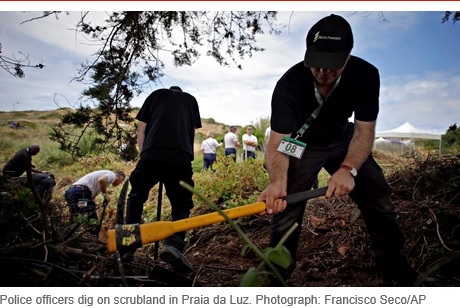
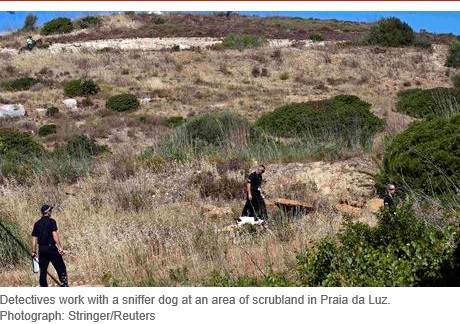

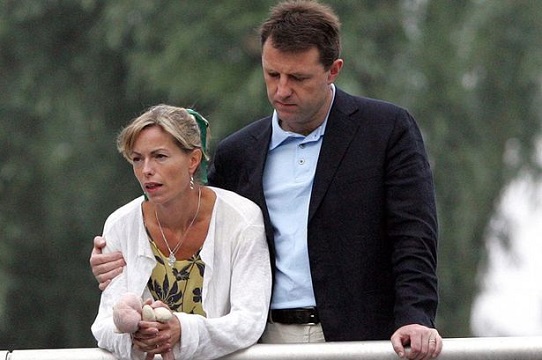
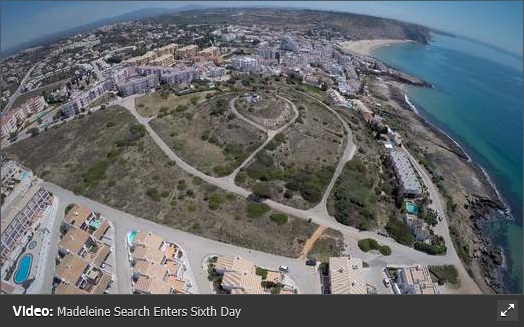
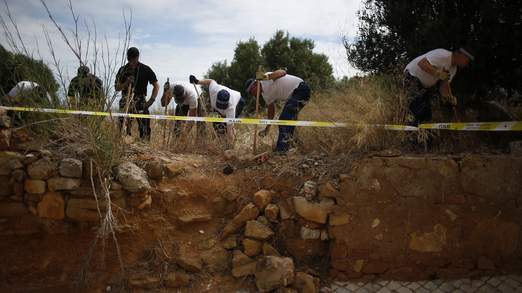
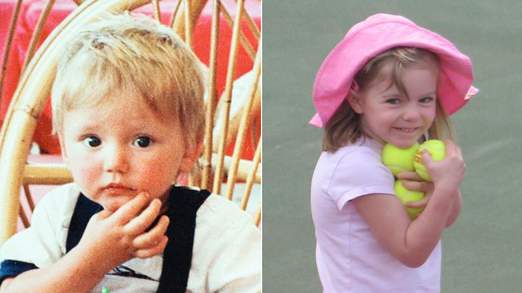
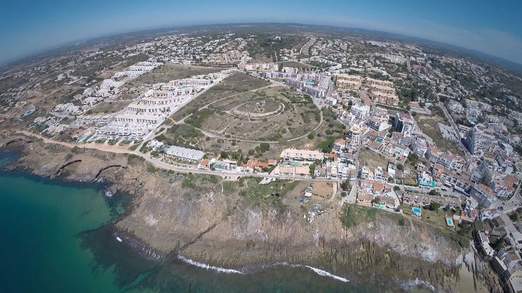
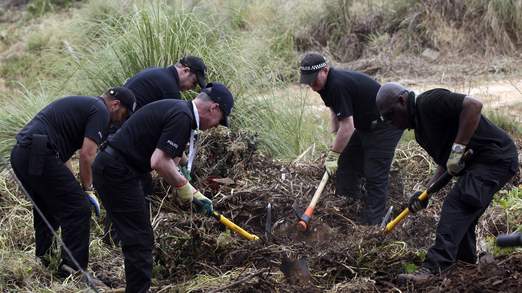
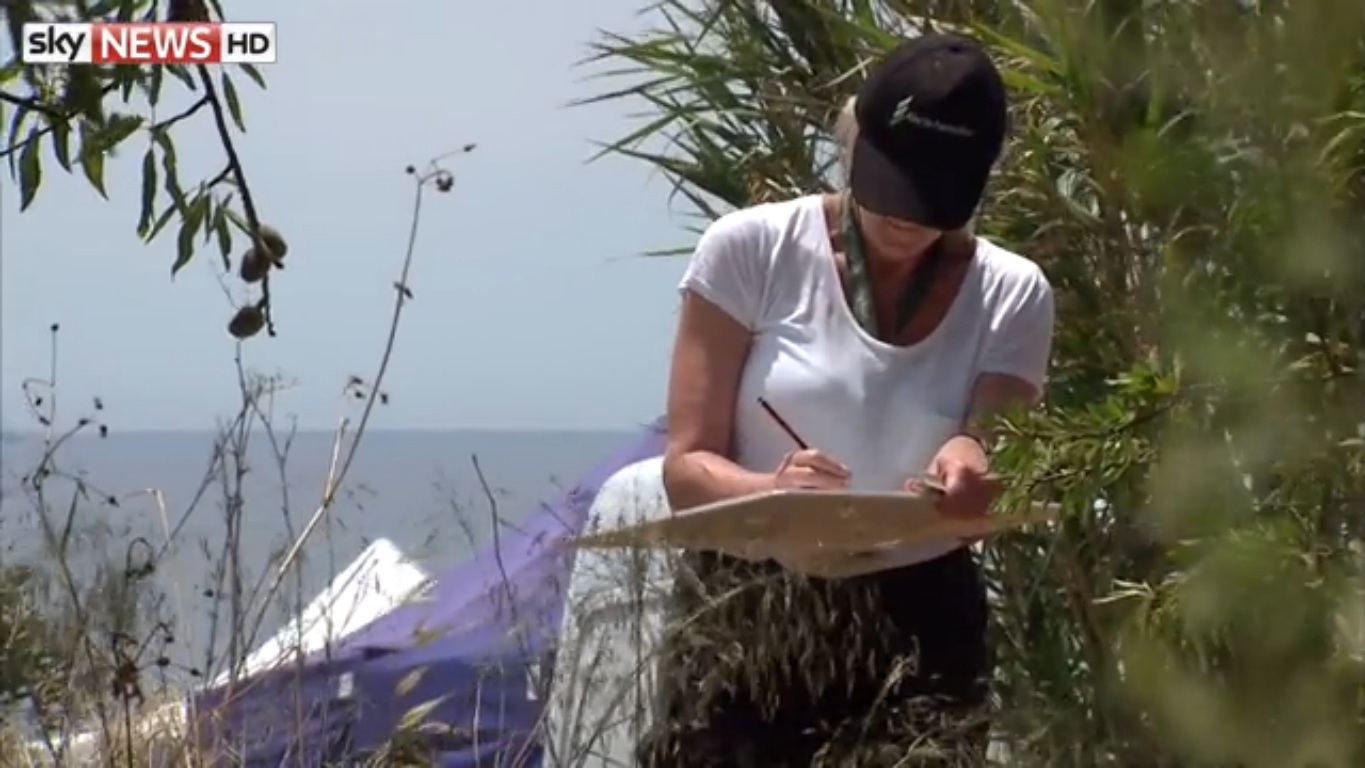
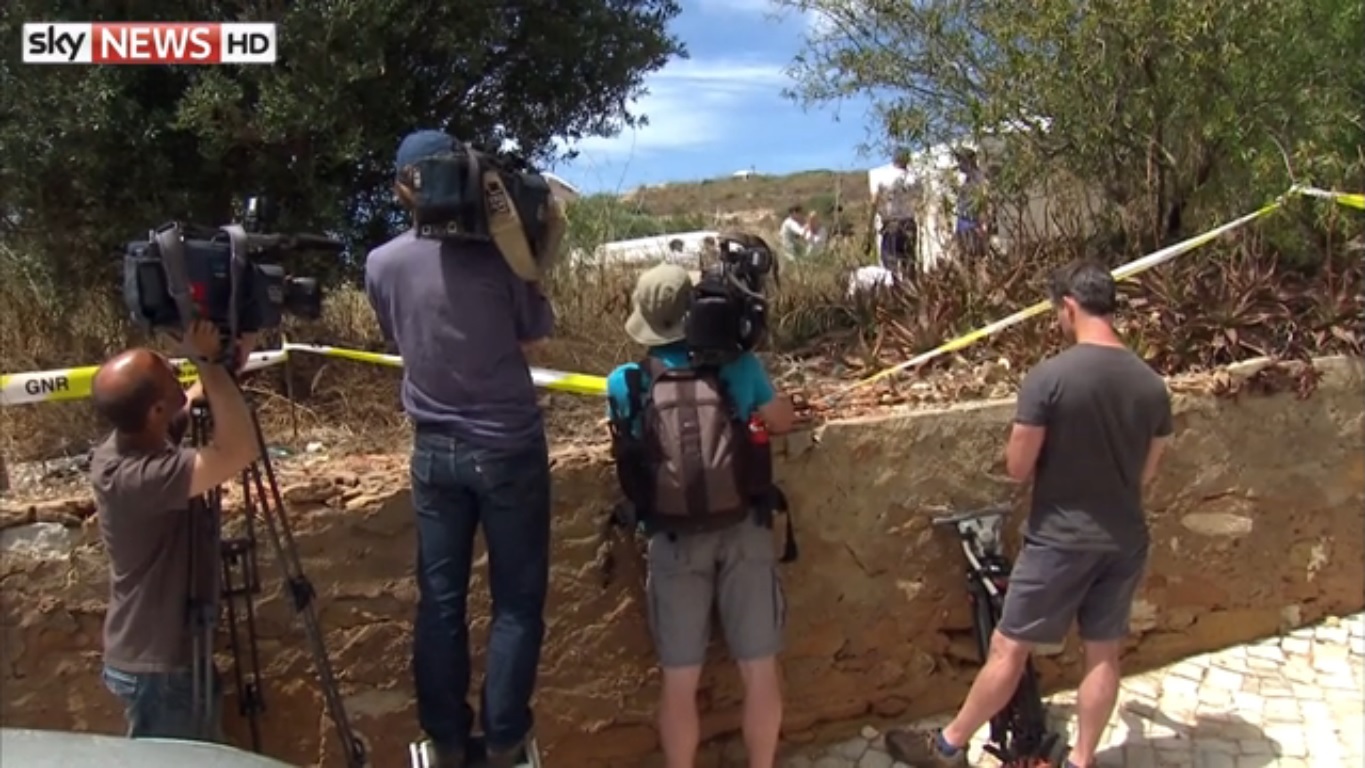
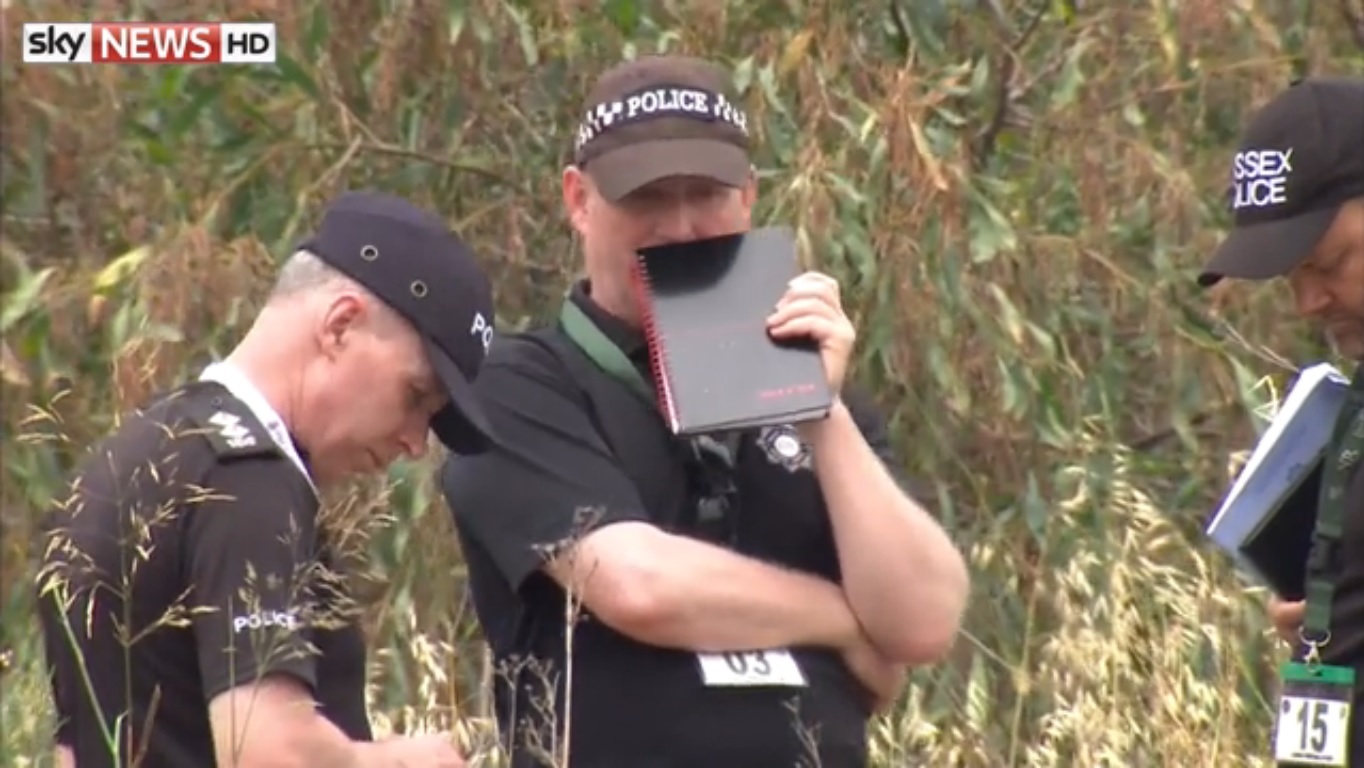
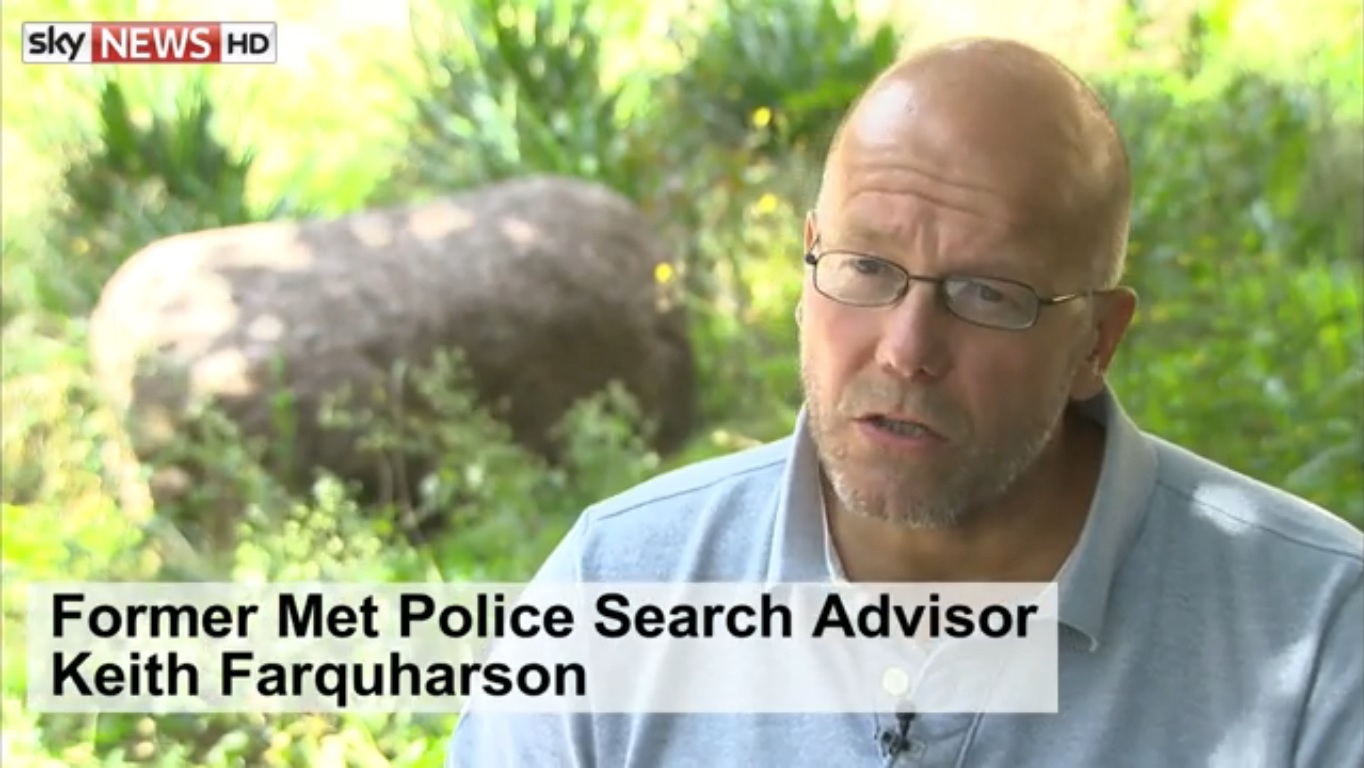
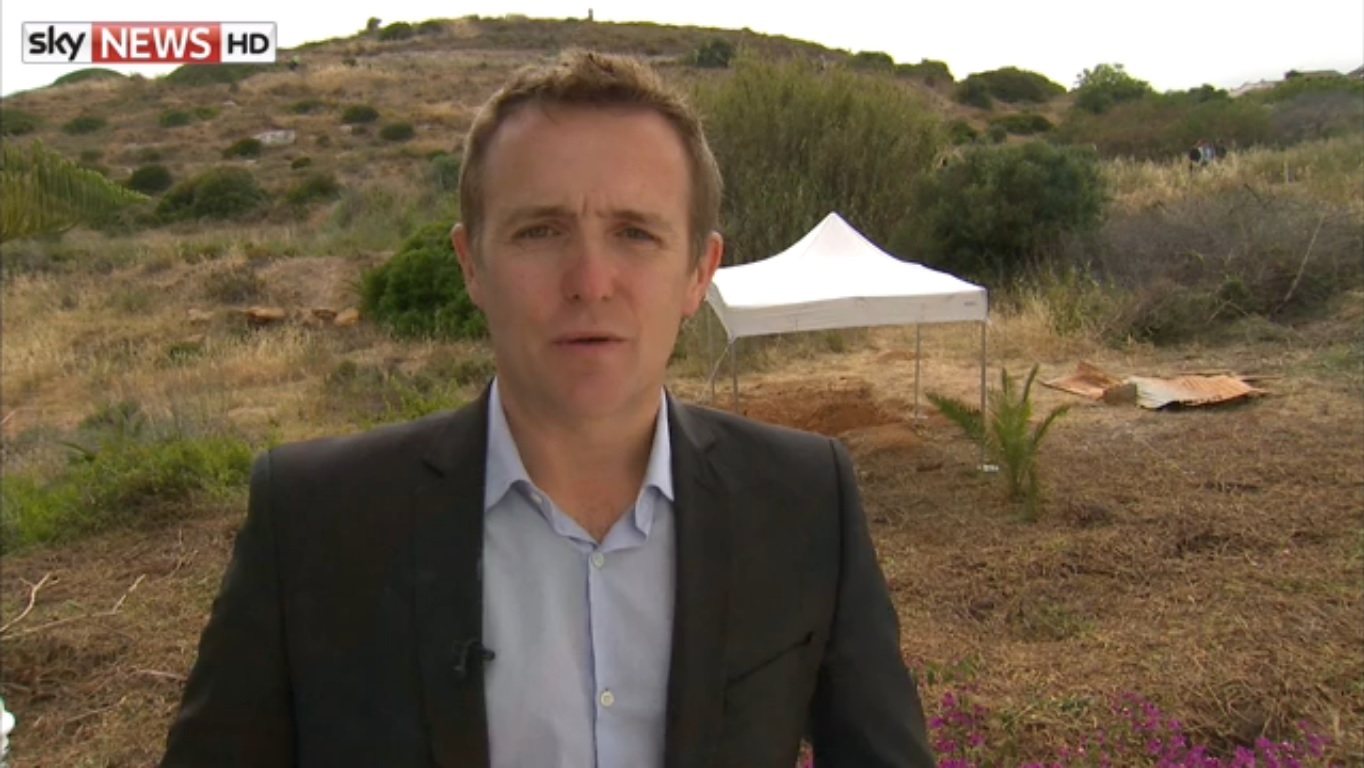
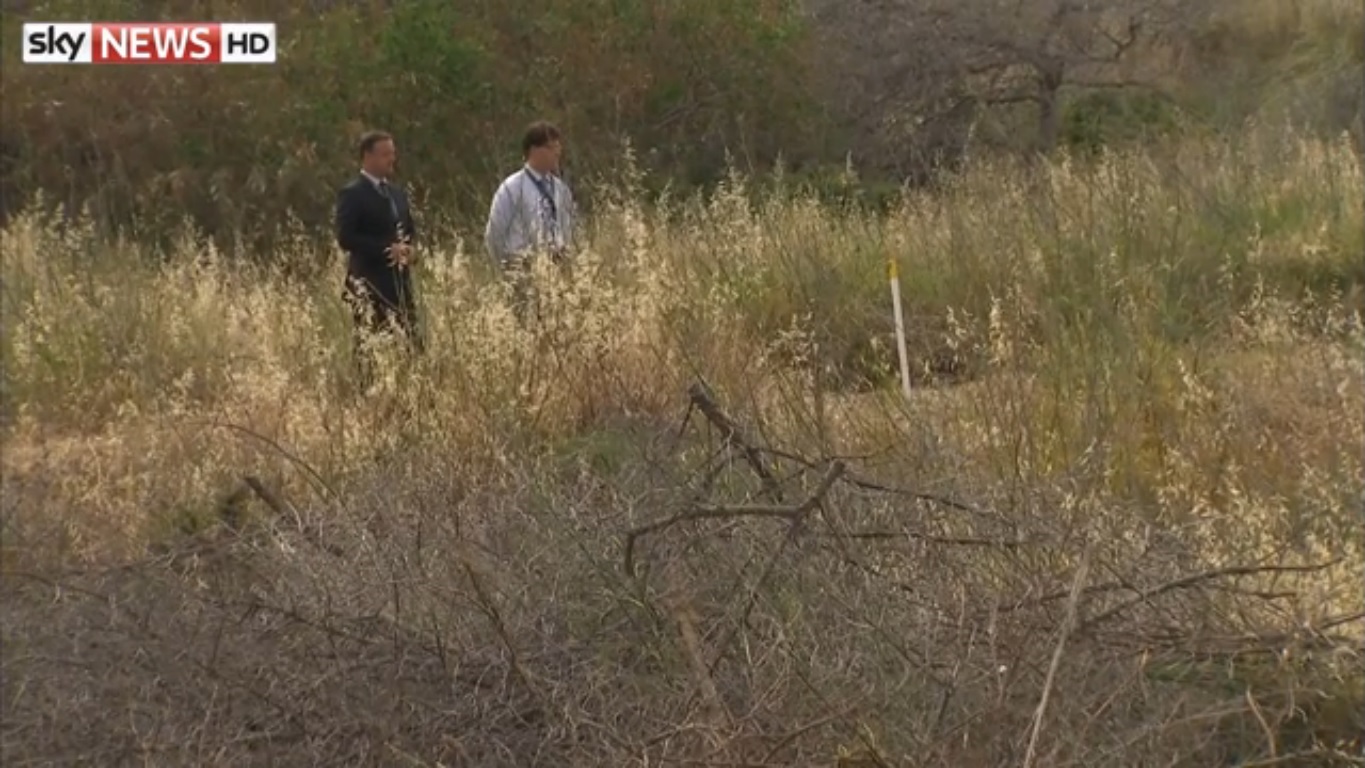
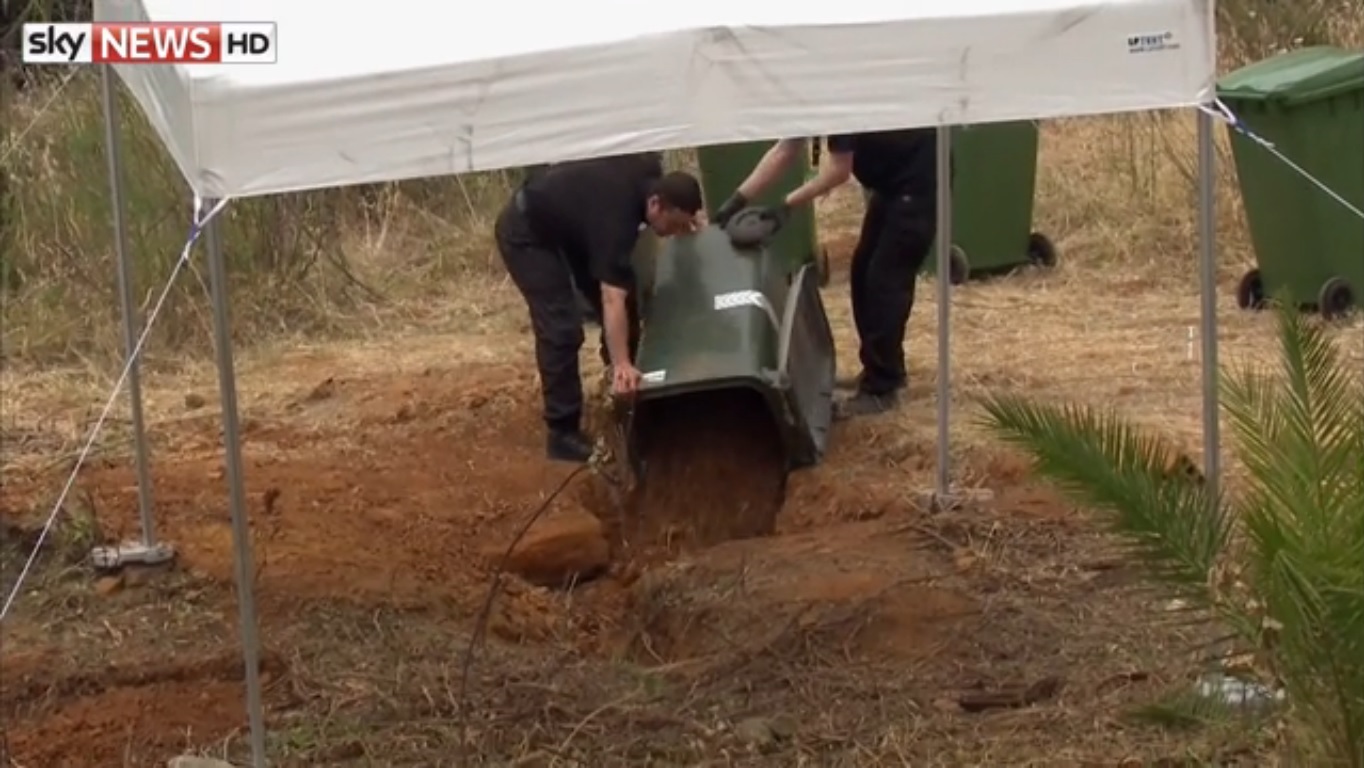
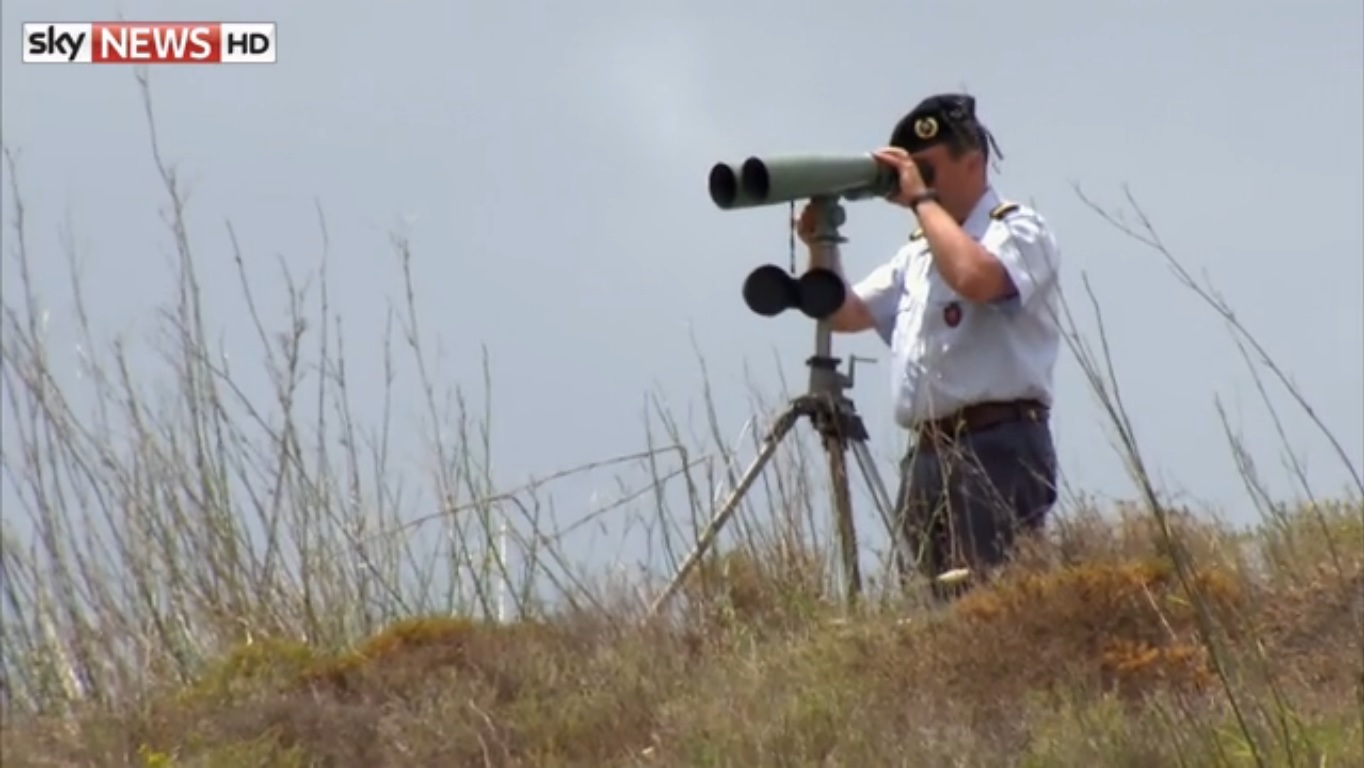


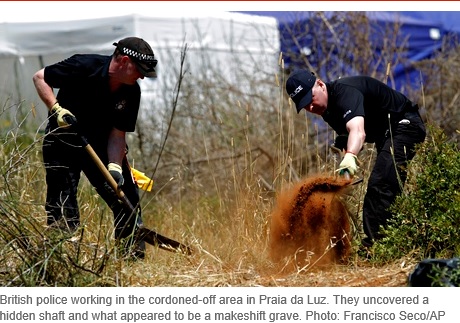
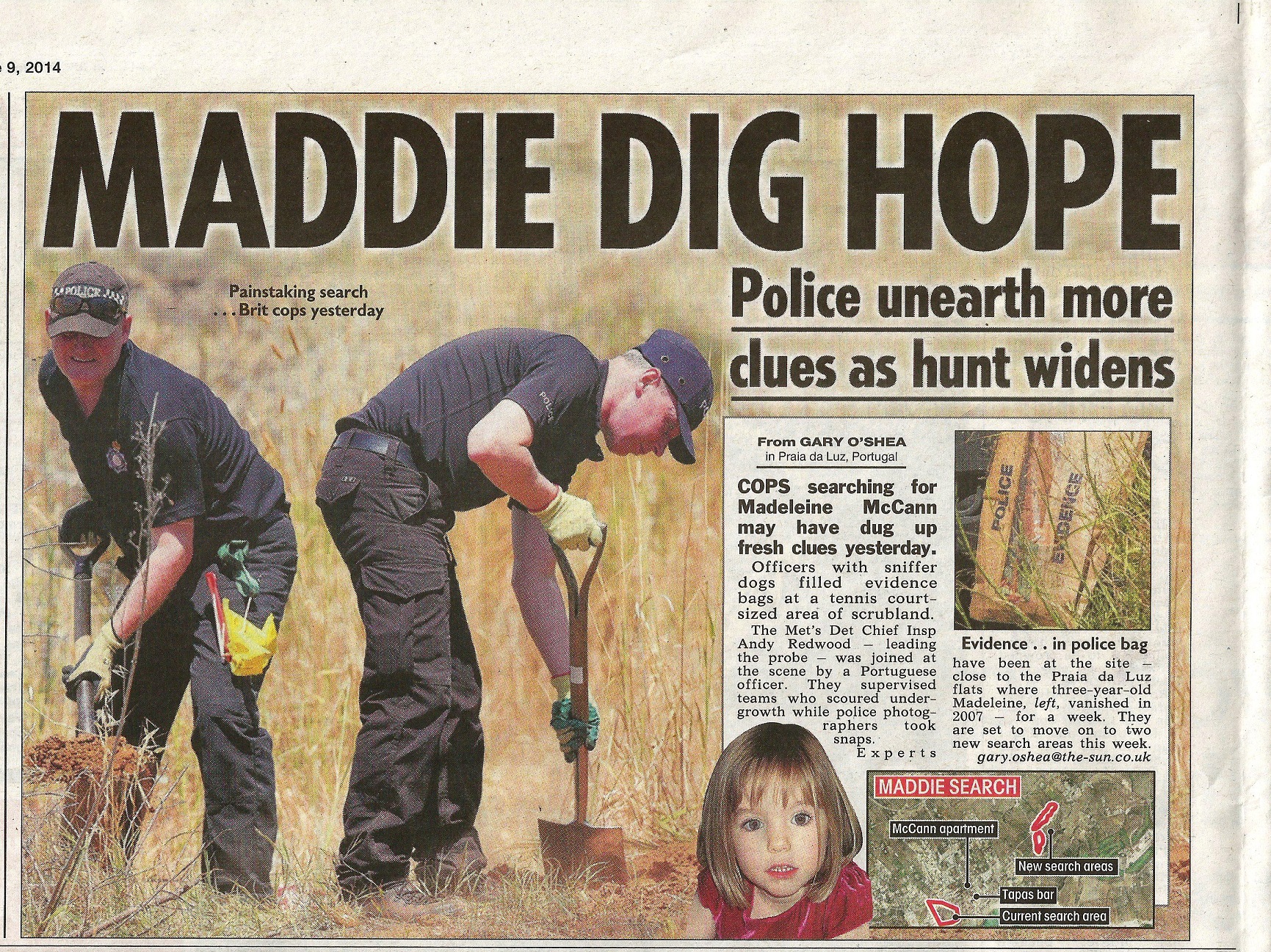
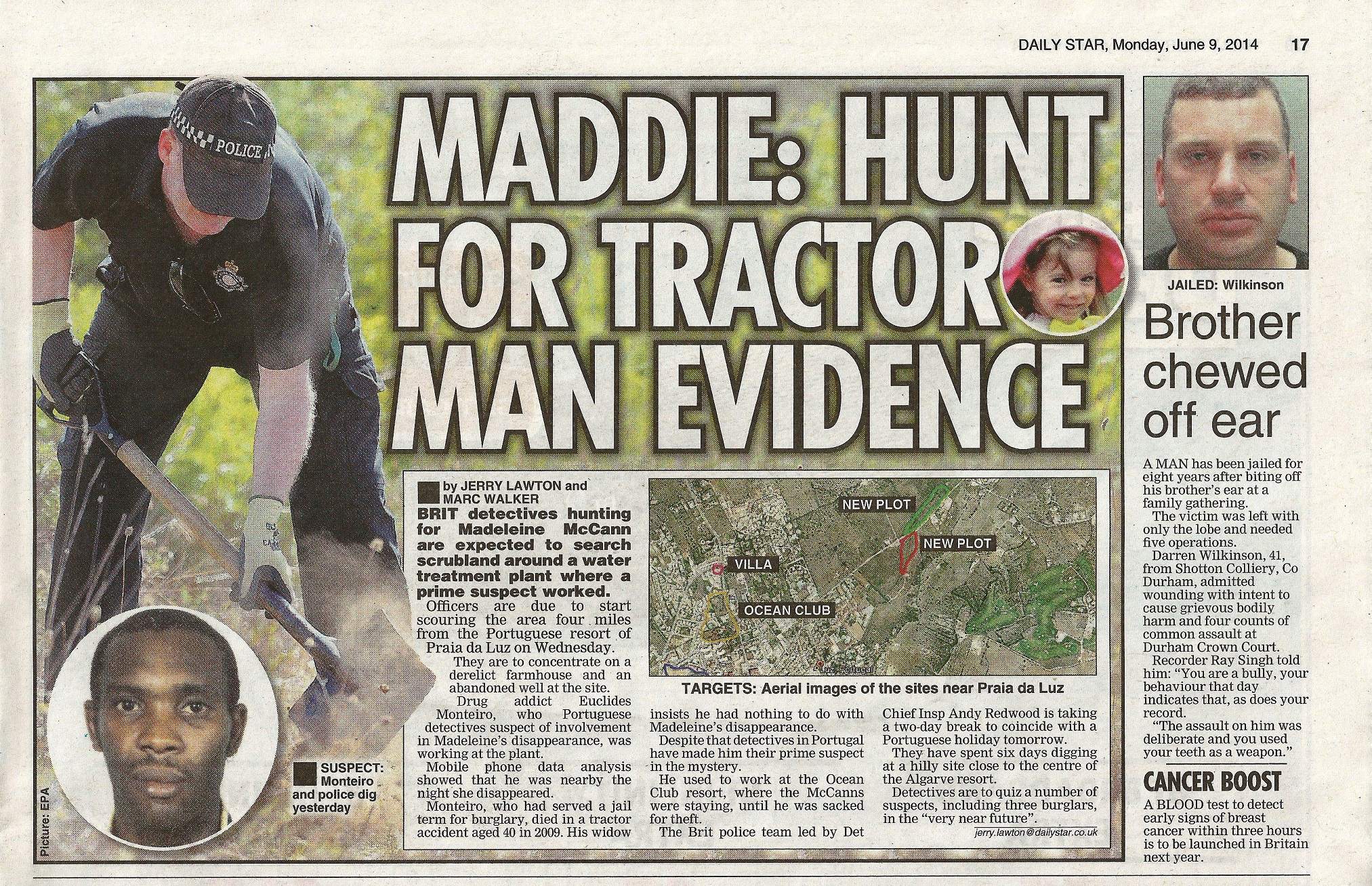
![SEARCH: Police continue to dig in Portugal [EPA]](sitebuilderpictures/DailyStar090614a.jpg)
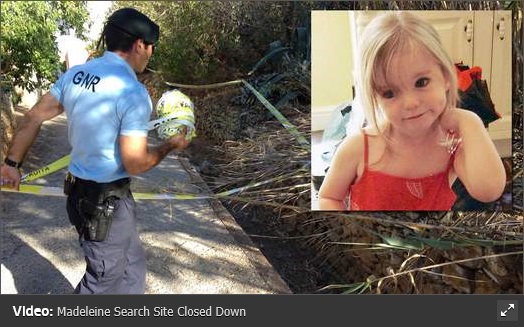
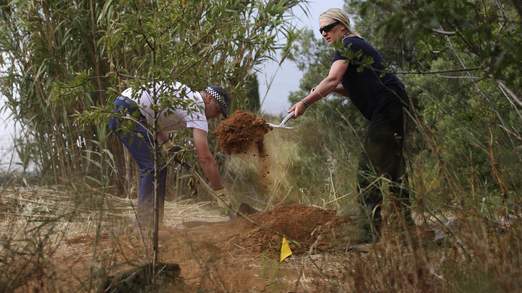
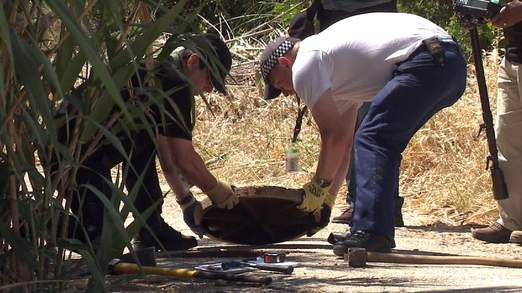
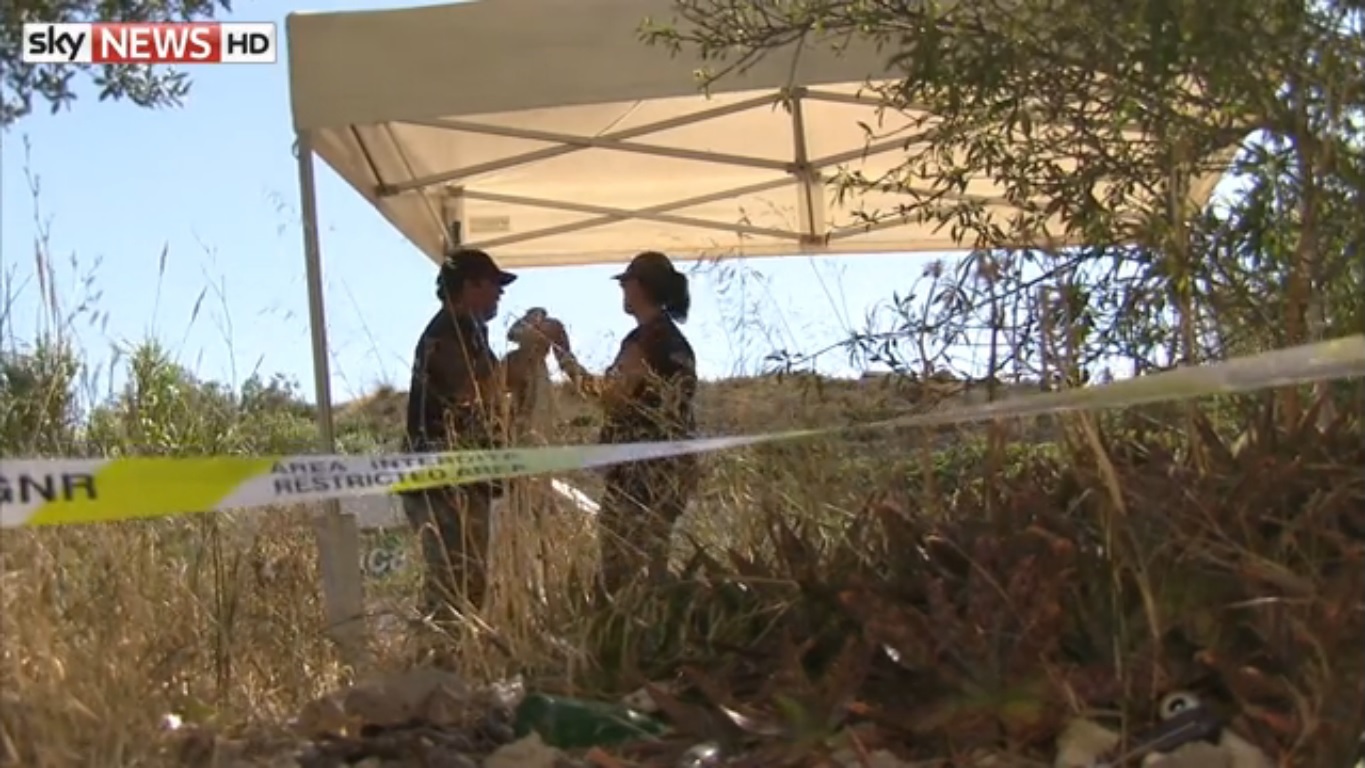
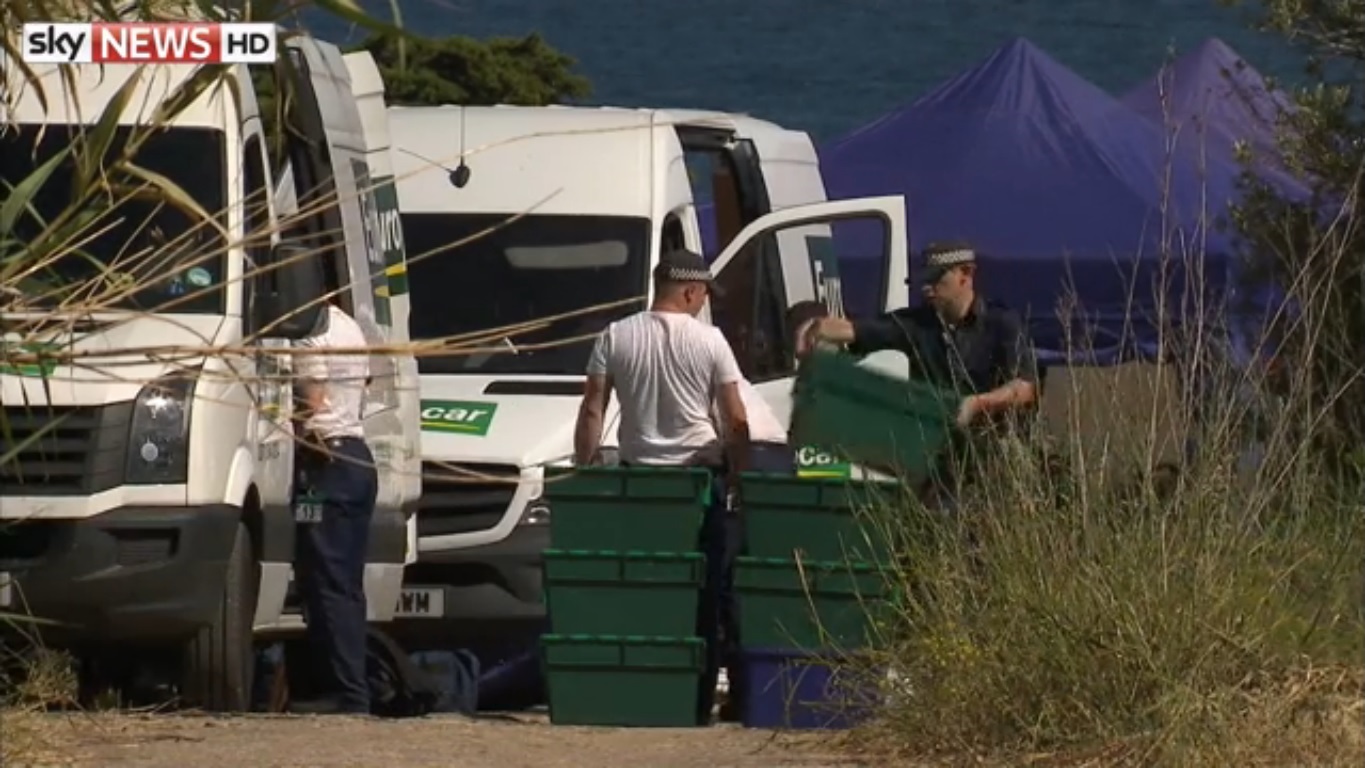
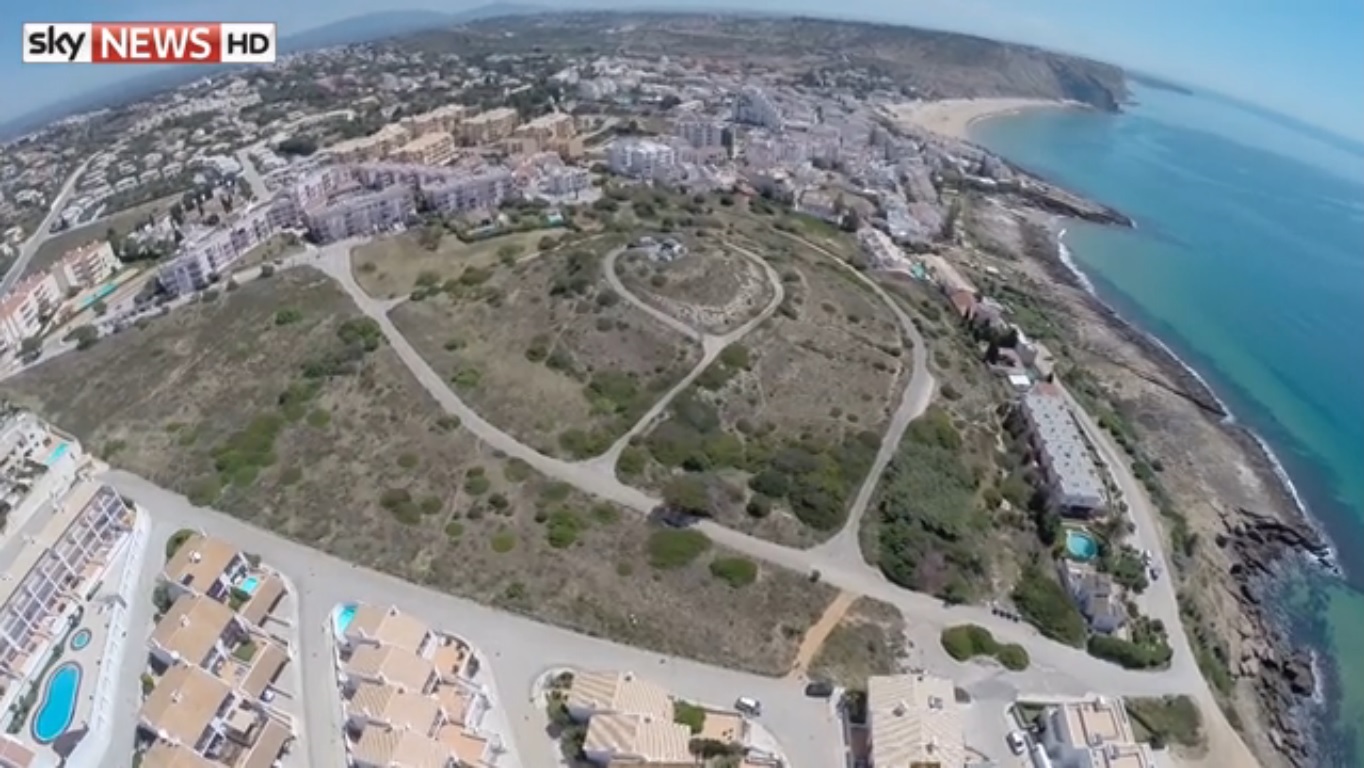
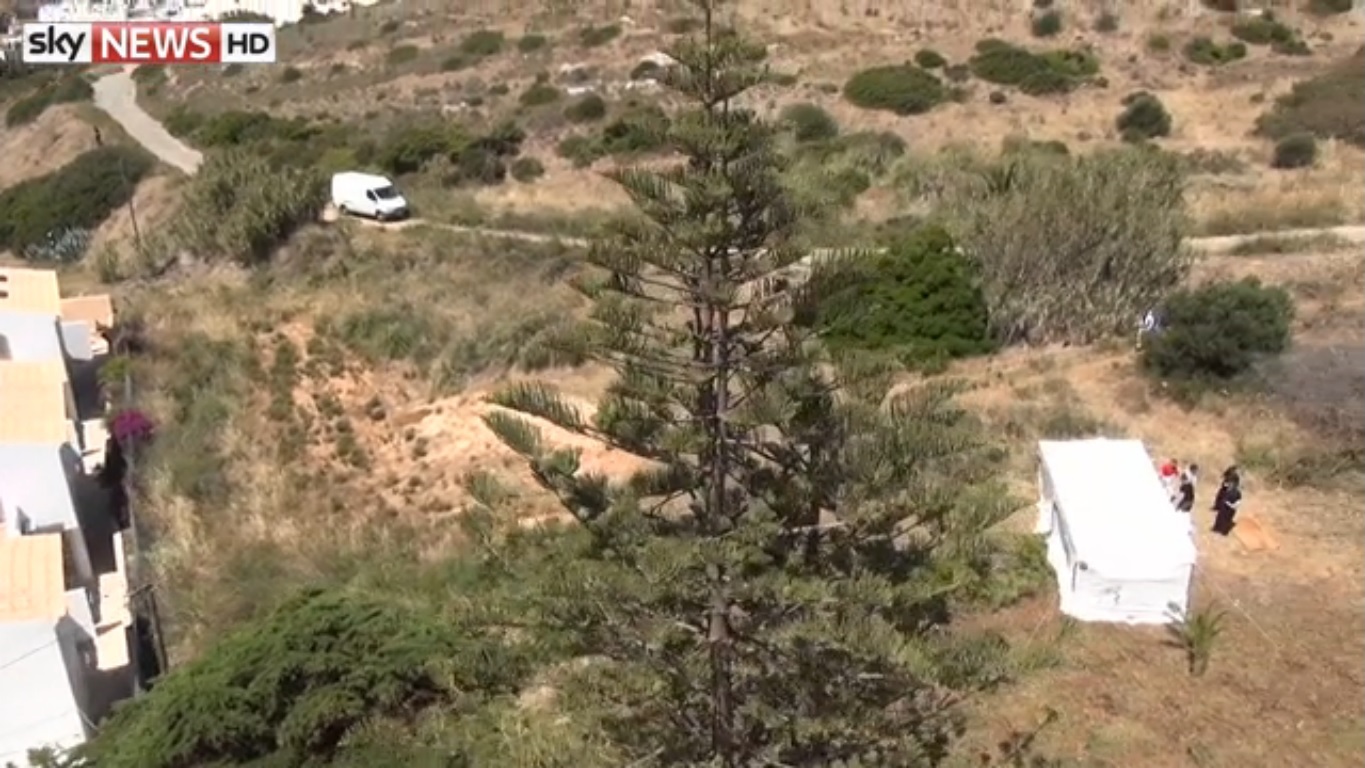
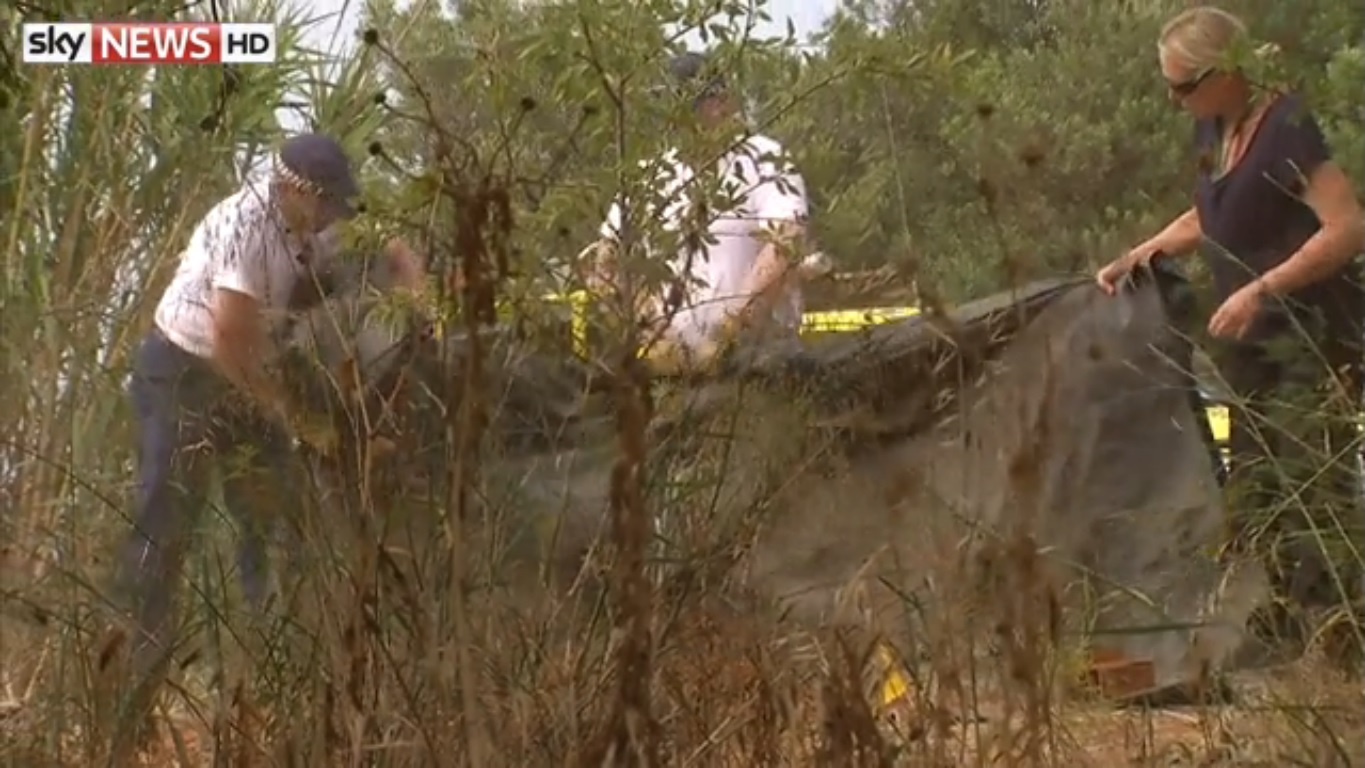
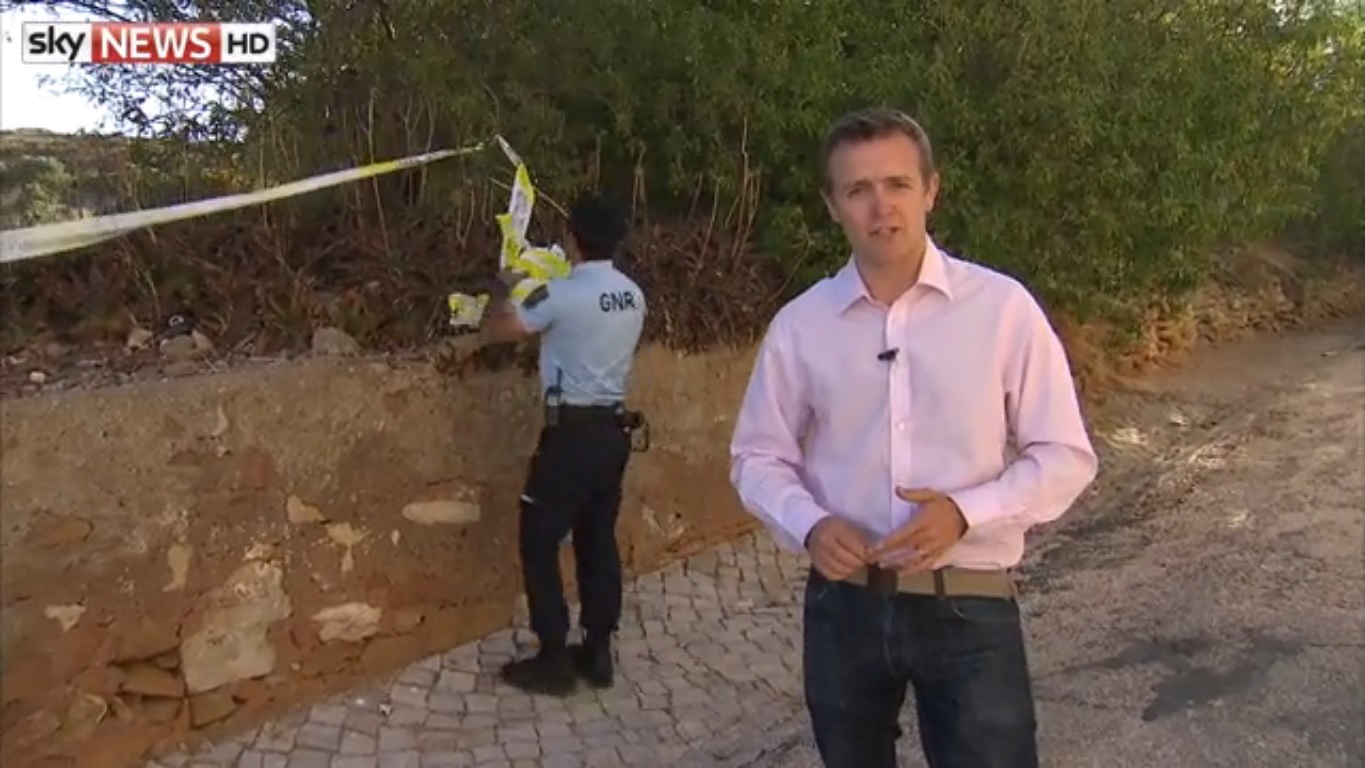
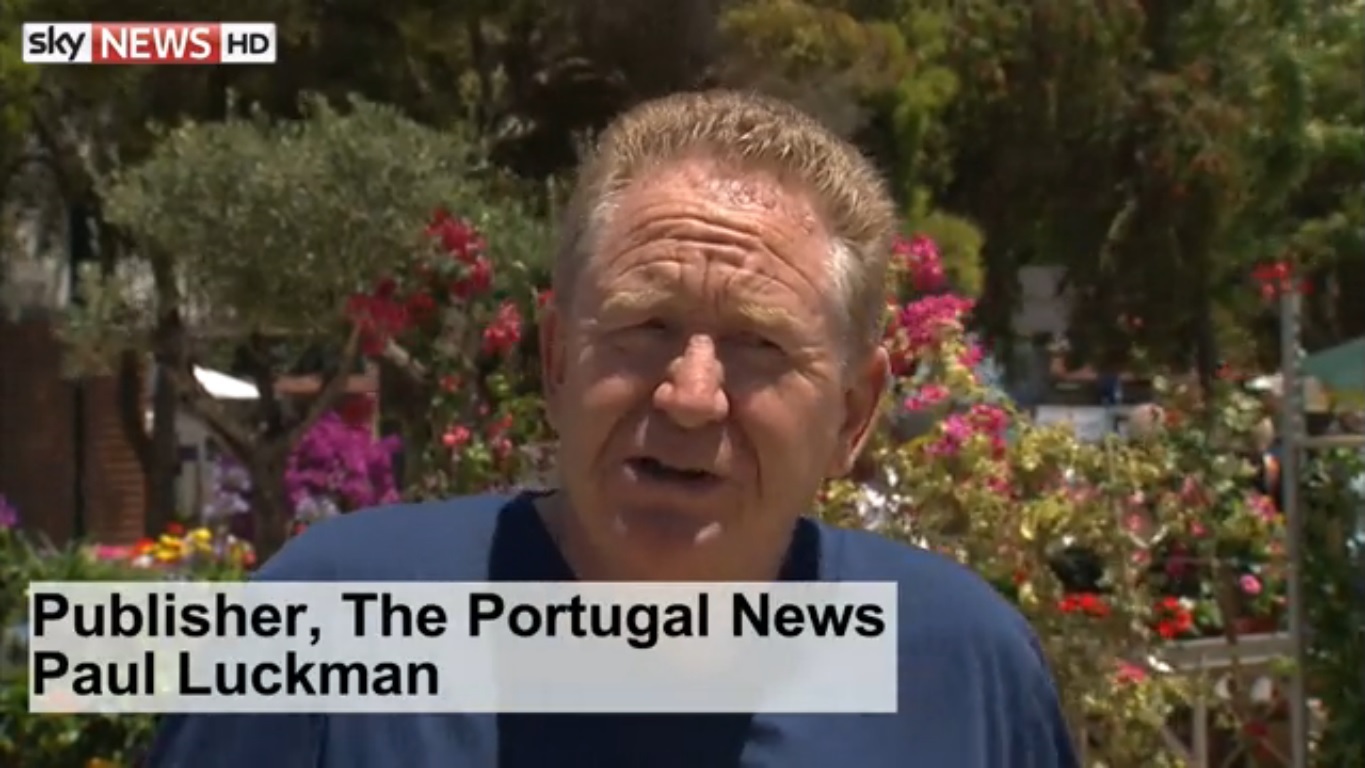
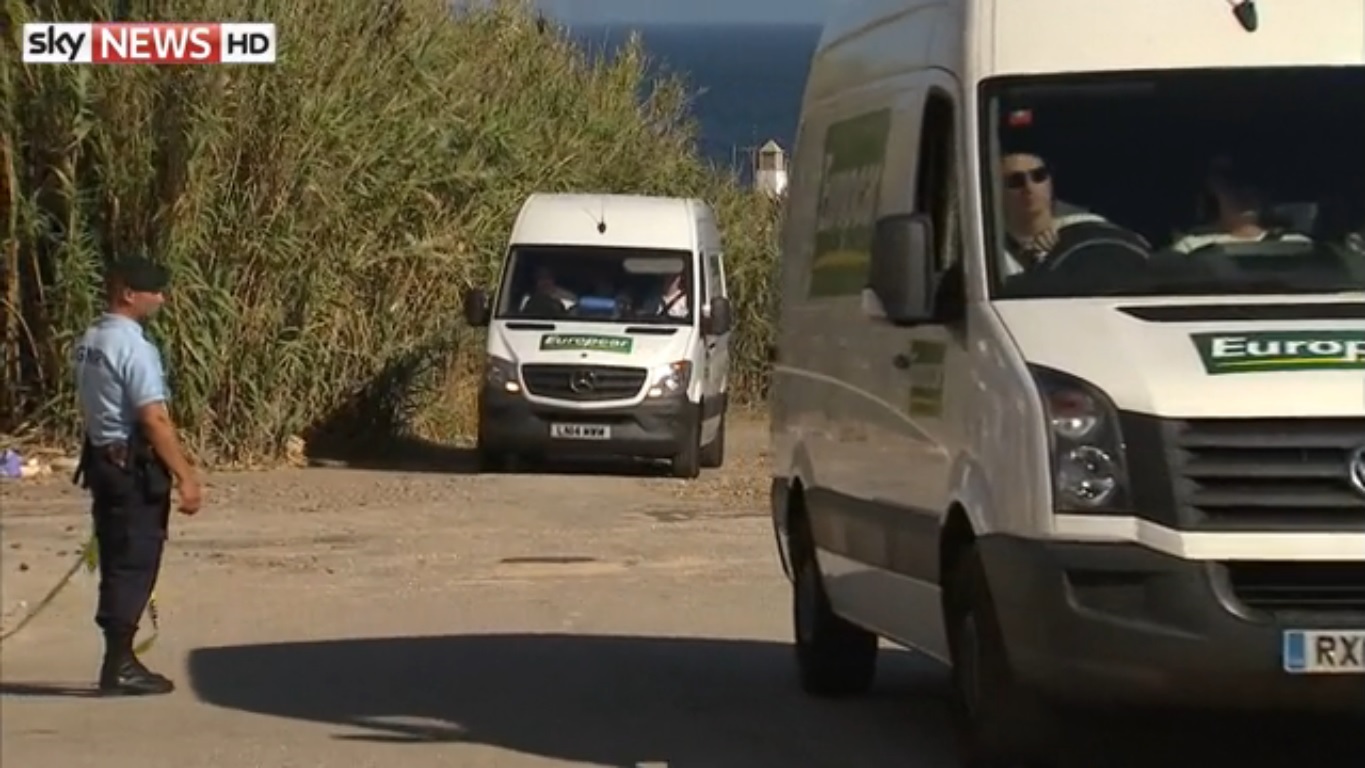
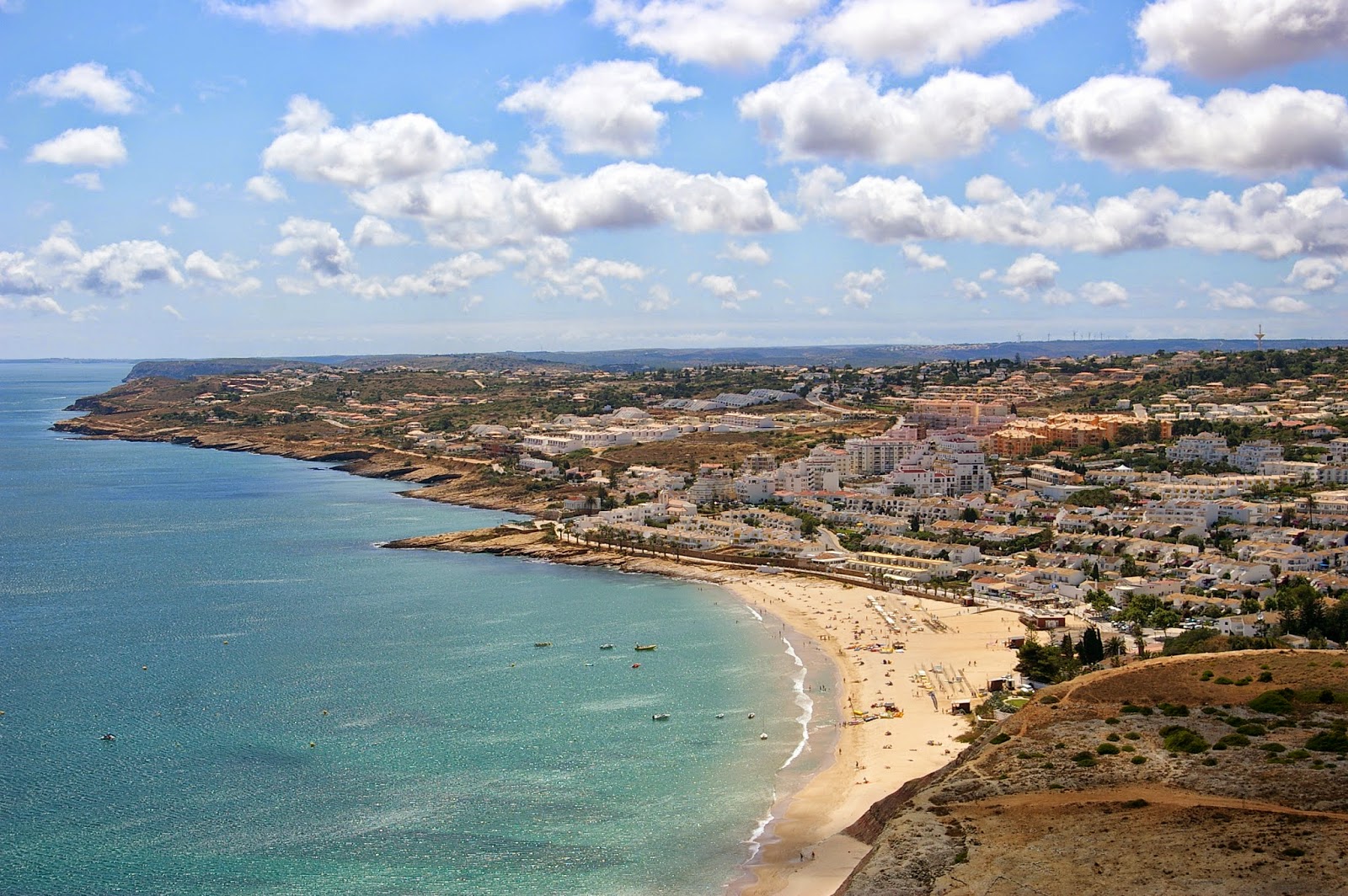
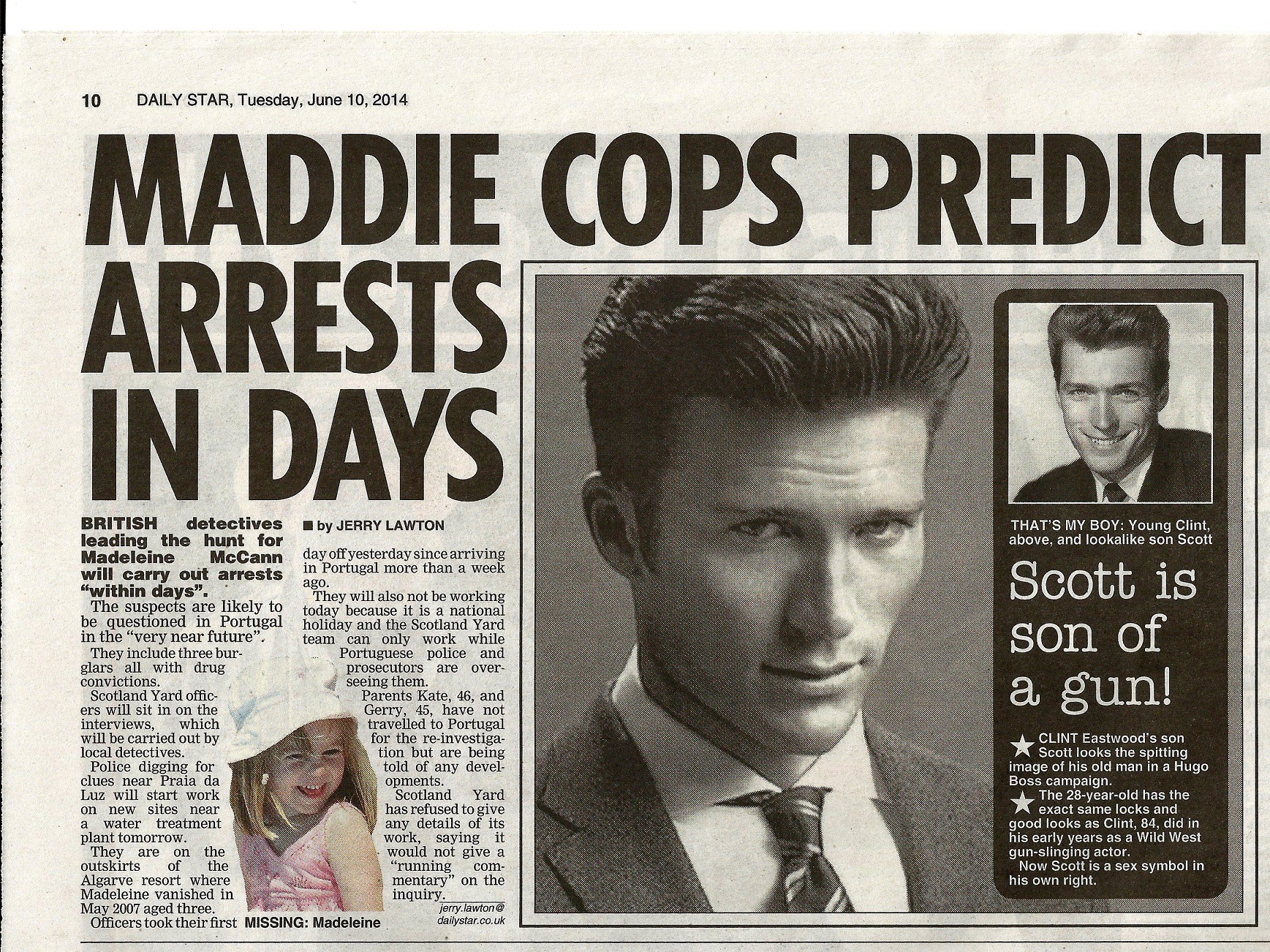
![MISSING: The investigation into Madeleine McCann has gained major ground in the last month [PA]](sitebuilderpictures/DailyStar100614a.jpg)
